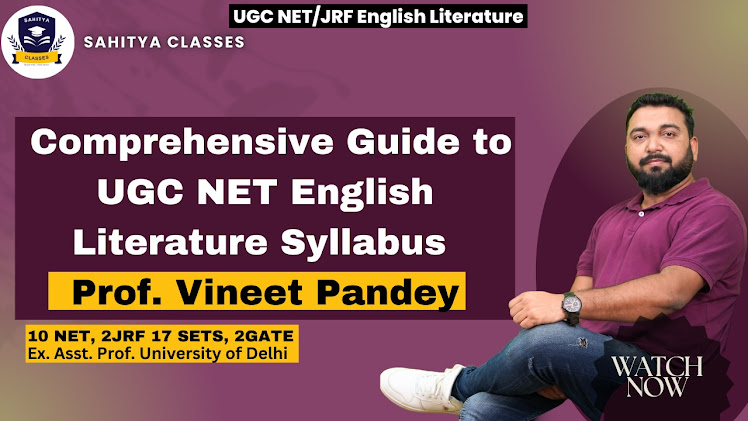The UGC NET English Literature exam is a crucial milestone for aspiring lecturers and researchers in India. It assesses the candidate’s understanding and expertise in English literature, ensuring they are well-prepared to contribute to academia. In this comprehensive guide, we will delve into the UGC NET English Literature syllabus, highlight key topics, provide study tips, and suggest essential resources to help you prepare effectively for the exam.
Understanding the UGC NET English Literature Syllabus
The syllabus for UGC NET English Literature is extensive and covers a wide range of literary periods, genres, and critical theories. Here’s a breakdown of the major sections:
Literary Theory and Criticism:
- Classical Criticism
- Modern Criticism
- Structuralism and Post-Structuralism
- Feminist Theory
- Postcolonial Theory
- Ecocriticism
British Literature:
- Chaucer to Shakespeare
- Milton to Johnson
- Romantic and Victorian Poetry
- Modern and Contemporary British Literature
American and Other Non-British Literature:
- Early American Literature
- 19th and 20th Century American Literature
- African, Caribbean, Canadian, and Australian Literatures
Indian Writing in English:
- Pre-Independence Literature
- Post-Independence Literature
- Contemporary Indian Authors
Literary Genres:
- Poetry
- Drama
- Fiction
- Non-Fiction Prose
Language and Linguistics:
- The History of English Language
- Phonetics and Phonology
- Morphology and Syntax
- Semantics and Pragmatics
Cultural Studies and Literary Theory:
- Key Concepts in Cultural Studies
- Critical Movements and Theories
- Influence of Social, Political, and Cultural Contexts
Key Topics to Focus On
While the syllabus is vast, certain topics are frequently highlighted in the exam. Focusing on these can help streamline your preparation:
- Major Literary Movements: Understanding movements such as Romanticism, Modernism, and Postmodernism is crucial.
- Prominent Authors and Works: Familiarize yourself with key authors and their significant works across different periods.
- Literary Terms and Devices: A strong grasp of literary terminology and devices is essential for analyzing texts.
- Critical Theories: Ensure a thorough understanding of major critical theories and their applications.
Study Tips for UGC NET English Literature
- Create a Study Schedule: Divide your study time effectively across different sections of the syllabus. Allocate more time to areas where you feel less confident.
- Read Primary Texts: Whenever possible, read the primary texts of significant authors rather than relying solely on summaries.
- Practice Previous Papers: Solve past papers to get an idea of the exam pattern and frequently asked questions.
- Join Study Groups: Engage in discussions with peers to gain different perspectives and insights on various topics.
- Take Notes: Make concise notes of important points, theories, and summaries of literary works.
- Refer to Standard Textbooks: Use recommended textbooks and reference materials to cover the syllabus comprehensively.
- Attend Coaching Classes: Consider joining coaching classes like Sahitya Classes, where experts like Prof. Vineet Pandey provide in-depth guidance and support.
Essential Resources
Books:
- "A Critical History of English Literature" by David Daiches
- "The Norton Anthology of English Literature" by M.H. Abrams
- "A History of English Literature" by Michael Alexander
- "The Oxford Companion to English Literature" by Margaret Drabble
Online Resources:
- UGC NET official website for syllabus updates and past papers.
- Online lecture series and webinars on literary theory and criticism.
- Digital libraries like JSTOR for accessing scholarly articles and papers.
Coaching Institutes:
- Sahitya Classes offers comprehensive courses, both online and offline, to help you prepare for the UGC NET English Literature exam with expert faculty and personalized support.
Conclusion
Preparing for the UGC NET English Literature exam requires a strategic approach, in-depth study, and access to quality resources. By understanding the syllabus, focusing on key topics, and utilizing effective study techniques, you can enhance your preparation and increase your chances of success. Remember, consistency and dedication are key to cracking this competitive exam. Best of luck with your studies!

